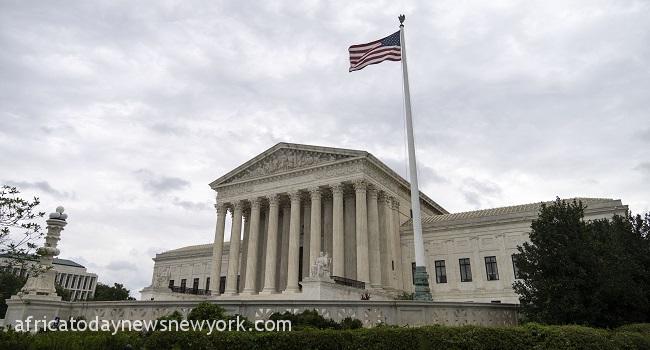The US Supreme Court has ruled on another landmark case on Friday as they put an end to the right to abortion in a controversial ruling that would be affecting years of other constitutional protections on one of the most divisive issues in the American political life that ranges from health to socio-political issues.
The conservative-dominated American Supreme court had openly overturned the landmark 1973 “Roe v Wade” decision that enshrined a woman’s right to a medically induced abortion, while stating that individual states can now make permissions or restrictions on the procedure themselves.
Read Also: Thousands Set To Hold Rally Across US Over Abortion Rights
“The Constitution does not confer a right to abortion; Roe and Casey are overruled, and the authority to regulate abortion is returned to the people and their elected representatives,” the court said.
In the majority opinion, Justice Samuel Alito said “abortion presents a profound moral issue on which Americans hold sharply conflicting views.
“The Constitution does not prohibit the citizens of each State from regulating or prohibiting abortion,” he said.
Dissenting were the three liberals on the court.
This new ruling will likely set into motion a cavalcade of new laws and motions in roughly half of the 50 US states which might cause them to severely restrict or outrightly ban and criminalise the abortions, while forcing women to travel long distances to states that still permit the procedure before they carry it out.
The ruling was made possible by the nomination of three conservative justices to the court by former Republican president Donald Trump — Neil Gorsuch, Kavanaugh and Amy Coney Barrett.
According to the Guttmacher Institute, 13 states have adopted so-called “trigger laws” that will ban abortion following the move by the Supreme Court.
Ten others have pre-1973 laws that could go into force or legislation that would ban abortion after six weeks before many women even know they are pregnant.

